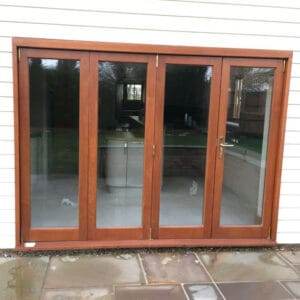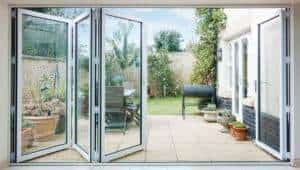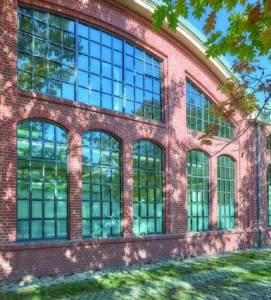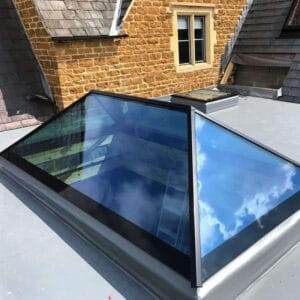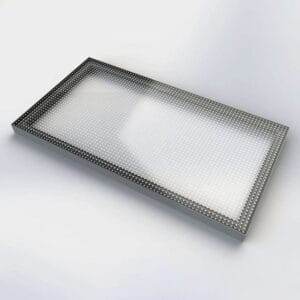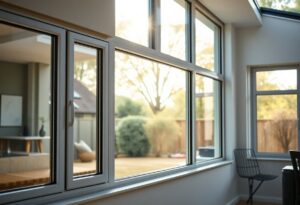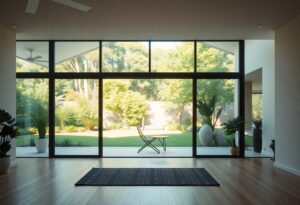With the increasing need for peace and quiet in urban environments, understanding the science behind soundproof windows is necessary for your home or office. These innovative windows are designed to minimise the impact of external noise, significantly enhancing your comfort. By utilising principles such as mass, air space, and damping, soundproof windows can effectively reduce sound transmission. By exploring the Science of Soundproofing, you can make informed choices that contribute to a quieter living space.
The Science of Sound
The study of sound encompasses various elements of physics, including How Soundproof Windows Work (Plus How Much They Cost). Sound is generated by vibrations that create waves, propagating through various mediums like air, water, and solids. These waves have unique physical characteristics, allowing them to penetrate materials, resulting in the transmission of sound that can affect your environment and overall comfort.
Understanding Sound Waves
Waves of sound are vibrations that spread through the air or other materials. As they travel, they create areas of compression and rarefaction, allowing sound to move from the source to your ears. The oscillations of these waves vary in amplitude and frequency, which influence how easily they penetrate different materials. Therefore, understanding these properties can aid you in utilising soundproof solutions effectively.
Sound Frequency and Human Perception
With sound, frequency plays a significant role in how you perceive different noises. Lower frequencies tend to be felt more than heard, while higher frequencies are more distinct to your ears. Recognising this difference is imperative when designing soundproof solutions, as certain frequencies can be more challenging to block or absorb. This awareness empowers you to create environments that mitigate unwanted noise.
Sound frequencies can greatly influence your day-to-day experience; certain sounds can be harmful, while others may be pleasant. The low-frequency sounds can lead to discomfort or even health issues, whereas high-frequency sounds may be annoying. Understanding how these frequencies operate and affect your perception allows you to make informed choices about soundproofing, ensuring your living or working space is as comfortable as possible.
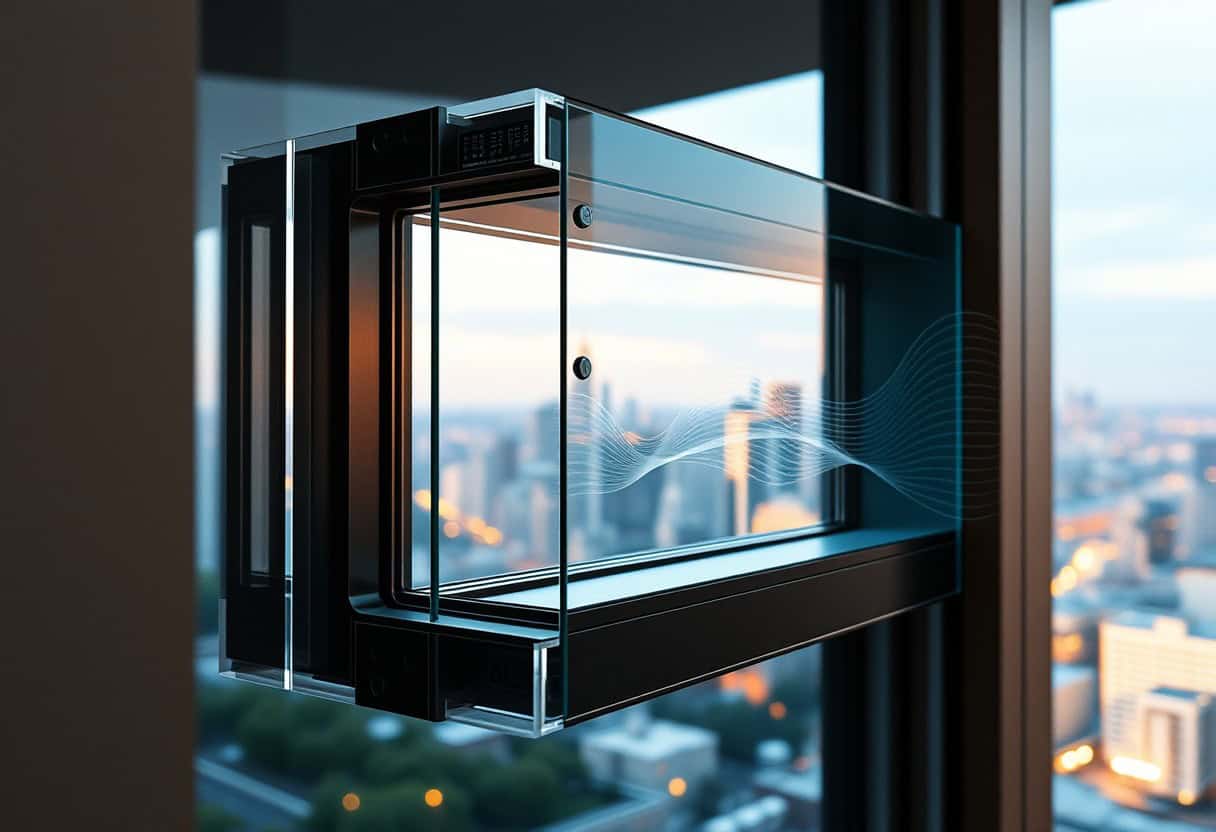
Components of Soundproof Windows
Now, soundproof windows consist of several components that work together to minimise noise penetration, enhancing your home’s tranquillity. Key elements include window frames, sealing materials, and glazing techniques, each contributing to the overall effectiveness of the windows in blocking sound. By understanding these components, you can make informed decisions for your soundproofing needs.
Window Frame and Sealant Materials
Across the spectrum of soundproof window design, the choice of window frame and sealant materials is vital. Typically, frames constructed from fibreglass, vinyl, or aluminium possess both density and elasticity, enhancing sound isolation. High-quality sealants, such as silicone or butyl rubber, ensure tight seals that prevent noise from seeping through gaps (selecting durable materials is a key factor in performance).
Glazing Techniques
One of the most effective strategies in soundproof windows is the use of advanced glazing techniques. Options such as double or triple glazing create insulating air gaps between glass panes, significantly reducing sound transmission. The combination of varying glass thicknesses further optimises sound absorption, ensuring a quieter environment for you.
To examine deeper, the fundamental principle behind glazing techniques lies in their ability to disrupt sound waves. The air gaps between the panes act as barriers, while the use of differently thick glass reduces resonance and vibration, thereby minimising noise transmission. It’s vital to consider these aspects when choosing your windows to achieve the best results in sound insulation.
Installation Factors
While installing soundproof windows, several factors contribute significantly to their overall effectiveness. Consider the following aspects:
- Window frame quality
- Seal integrity
- Glass thickness
- Installation precision
- Building structure compatibility
The quality of these factors directly impacts your results in noise reduction.
Proper Installation Techniques
Along with selecting the right materials, professional installation is crucial for achieving optimum soundproofing results. Expert installers employ specific methods such as checking for air leaks, ensuring proper alignment, and using specialised caulking to seal gaps. They also assess the frame compatibility with your existing window structure, which optimally supports the glass layers designed for sound insulation.
Common Mistakes to Avoid
Avoid overlooking the importance of detailed installation procedures, as errors can significantly compromise the effectiveness of your soundproof windows. It is crucial to ensure that your windows fit snugly within the frame to prevent sound leaks. Additionally, neglecting to check the condition of existing frames can lead to poor sealing and insulation.
Another critical aspect to consider is the improper sealing of gaps within your installation. If frames are not adequately sealed, external noise can infiltrate through even the smallest openings, minimising the benefits of your soundproof windows. Always opt for high-quality materials and take the time to inspect for drafts and imperfections before completing the installation. A meticulous approach will yield the most effective noise reduction results.
Efficacy and Testing of Soundproof Windows
After installing soundproof windows, you may wonder about their actual efficacy. Various testing methods measure their performance, with results often expressed in decibel reduction ratings. These ratings help you compare different products and understand how effectively they can diminish external noise (choosing the right solution is vital for your peace and comfort).
Measurement Standards
On the subject of measurement standards, soundproofing effectiveness is evaluated through controlled tests, where decibel reduction is quantified in labs. Standards such as ASTM E90 and ISO 140-3 guide this testing, providing you with reliable benchmarks to assess performance. The ratings help you make informed decisions when selecting windows that meet your noise reduction needs.
Real-World Performance
For many homeowners, soundproof windows may perform differently in real-world settings compared to lab results. Testimonials often reveal a significant decrease in noise for users living near busy roads or airports. Case studies consistently show that these windows can drastically enhance comfort, leading to quieter living environments than previously experienced.
At many residences, soundproof windows are not just about noise reduction; they promise a more serene atmosphere. You’ll find that clients frequently cite improved sleep quality and enhanced property value as notable benefits. However, it is also important to acknowledge that installation quality significantly affects performance outcomes, and proper seals and materials are vital for ensuring maximum effectiveness.
Acoustic Management Beyond Windows
Once again, achieving optimal soundproofing requires a broader approach that goes beyond just installing soundproof windows. You should consider the entire environment, including walls, doors, and flooring, all of which contribute to the overall acoustic profile of your home. Implementing additional insulation, using acoustic panels, and choosing appropriate furniture can significantly enhance your space’s ability to mitigate noise, creating a quieter and more peaceful atmosphere.
Additional Soundproofing Techniques
Management of sound within your home can be significantly improved by integrating complementary soundproofing strategies alongside soundproof windows. For instance, employing heavy curtains, using rugs to absorb sound, and sealing gaps around doors and windows can contribute to a more serene environment. Moreover, considering acoustic treatments like wall panels and soundproof doors will collectively enhance your building’s acoustic performance.
Lifestyle and Home Environment Considerations
After installing soundproof windows, it’s vital to consider how your lifestyle choices and home design can influence noise levels. You should evaluate the placement of appliances, choose quieter models, and organise your spaces to minimise sound disturbance. Soundproof windows should be seen as a part of a holistic approach to managing noise, working synergistically with your layout and habits for maximum benefit.
Also, it’s vital to acknowledge that sound management extends beyond mere installations. Your everyday choices, like where you position your loud electronics or the type of flooring you select, can contribute to the overall noise level in your home. Fostering a calm living environment means being mindful of these aspects and understanding that soundproof windows are just one aspect of your acoustic strategy. By creating thoughtful spaces and implementing various sound-reduction methods, you will significantly improve your overall auditory experience.
Final Words
Ultimately, understanding the science behind soundproof windows equips you with the knowledge to enhance your living environment. By utilising a combination of thicker glass, air gaps, and specialised frames, these windows effectively reduce noise transmission, helping you create a serene space. Investing in soundproof windows not only improves your comfort but also increases the overall value of your home. With the right choice, you can significantly minimise external disturbances and enjoy a more peaceful atmosphere.
FAQ
Q: What are soundproof windows and how do they differ from regular windows?
A: Soundproof windows are specifically designed to reduce the transmission of sound from the external environment into a building. They achieve this through various construction methods, such as the use of double or triple glazing, specially designed frames, and acoustic seals. In contrast, regular windows typically offer minimal sound reduction and may be made of single panes of glass that allow more sound to pass through.
Q: How do double glazed windows help in soundproofing?
A: Double glazed windows consist of two panes of glass separated by an air gap. This configuration not only improves thermal insulation but also significantly enhances soundproofing. The air gap acts as a barrier that dampens sound waves, while the different densities of the glass can further reduce the transmission of noise. The effectiveness of soundproofing can be increased by using varying thicknesses of glass.
Q: What materials are used in soundproof windows?
A: Soundproof windows often utilise multiple materials that contribute to noise reduction. These may include laminated glass, which features a layer of resin between two sheets of glass, and sound-dampening frames made from vinyl or fibreglass. Additionally, acoustic seals are used around the edges to prevent sound leaks, ensuring that the window assembly is as effective as possible.
Q: Are soundproof windows effective against all types of noise?
A: While soundproof windows significantly reduce many types of noise, their effectiveness can vary depending on the frequency of the sound. Lower-frequency sounds, such as those produced by traffic or heavy machinery, may be more challenging to block completely than higher-frequency sounds, like human voices. However, a properly installed soundproof window can greatly minimise the impact of both types of noise.
Q: How does the installation process affect the soundproofing capabilities of windows?
A: The installation process plays a vital role in the effectiveness of soundproof windows. Even the best soundproof windows can underperform if not installed correctly. Proper sealing and alignment are crucial to prevent sound leaks around the edges. It is advisable to use professional installers who are experienced in soundproofing to ensure optimal performance.
Q: Can soundproof windows help with energy efficiency as well?
A: Yes, soundproof windows can also contribute to improved energy efficiency. The same features that help to dampen sound—such as double or triple glazing and insulated frames—work effectively to reduce heat transfer, keeping interior spaces warmer in winter and cooler in summer. This can lead to reduced energy bills over time.
Q: What is the cost associated with installing soundproof windows?
A: The cost of installing soundproof windows can vary significantly depending on several factors, including the type of window chosen, the size, and the complexity of the installation. On average, soundproof windows might be more expensive than standard windows due to the specialised materials used and the advanced technology involved. However, many homeowners find the investment worthwhile for the enhanced comfort and quieter living environment they provide.

